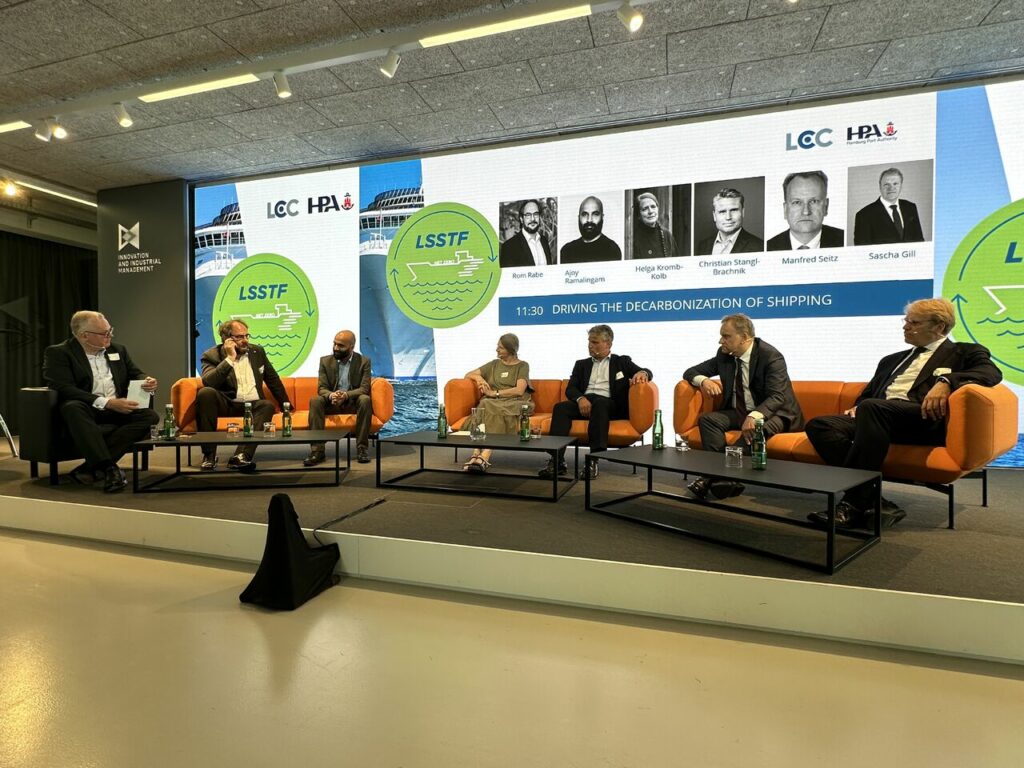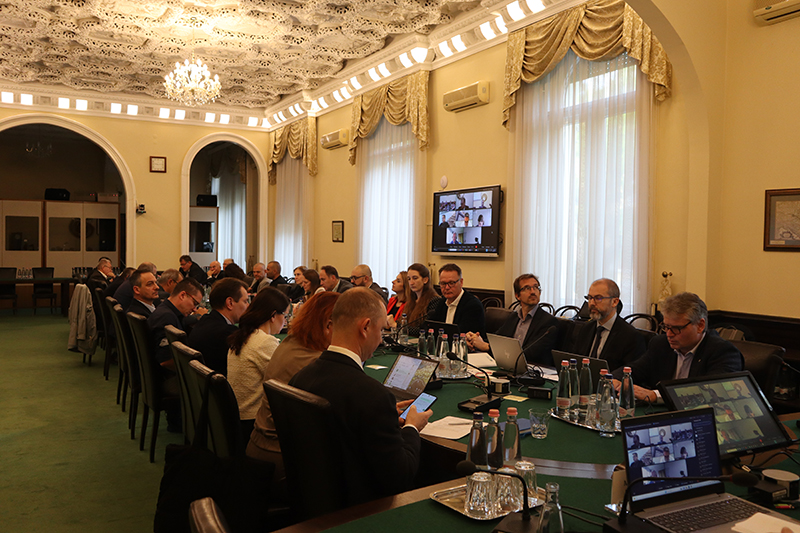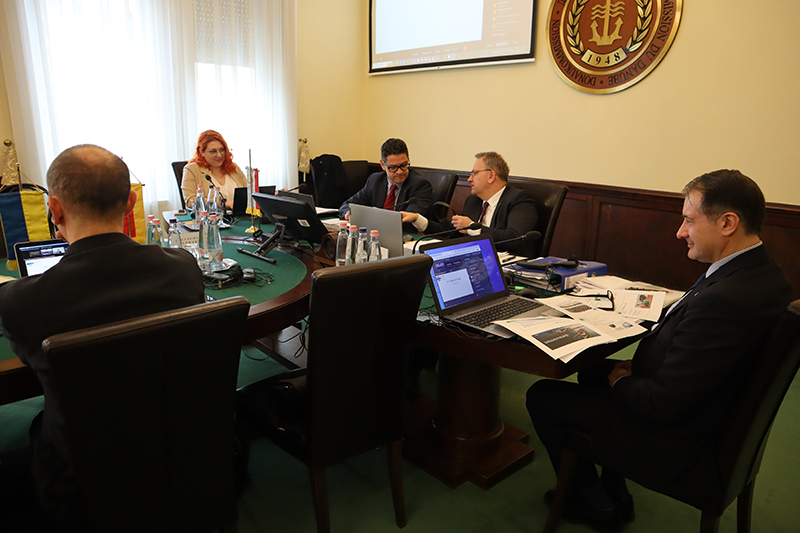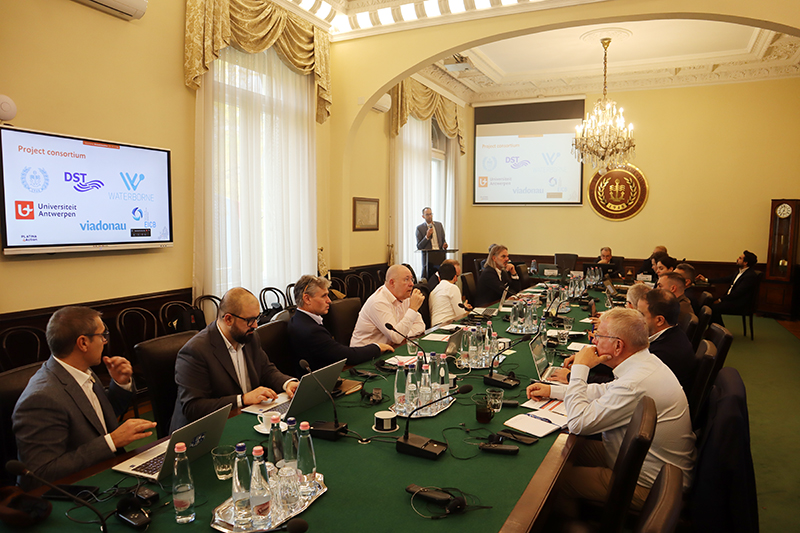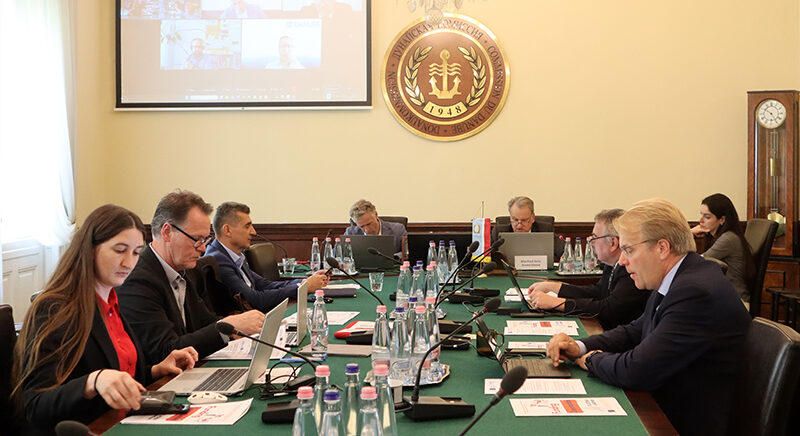DC participation at the Sixth LEC Sustainable Shipping Technology Forum
The Sixth LEC Sustainable Shipping Technology Forum “Greening Danube navigation – roadmap to an (almost) zero emission Danube fleet” was held in Graz on 26 June 2025.
The event addressed the greening of ports and corridors, measures for the decarbonization of shipping, projects accelerating the use of innovations for sustainable shipping, design and education needs for green transformation, and enablers for technology. The conference is in its second edition as a technology-driven forum, founded in 2019 and hosted by Large Engines Competence Center in cooperation with Hamburg Port Authority . The DC Secretariat was represented by Mr Manfred Seitz, Director-General.
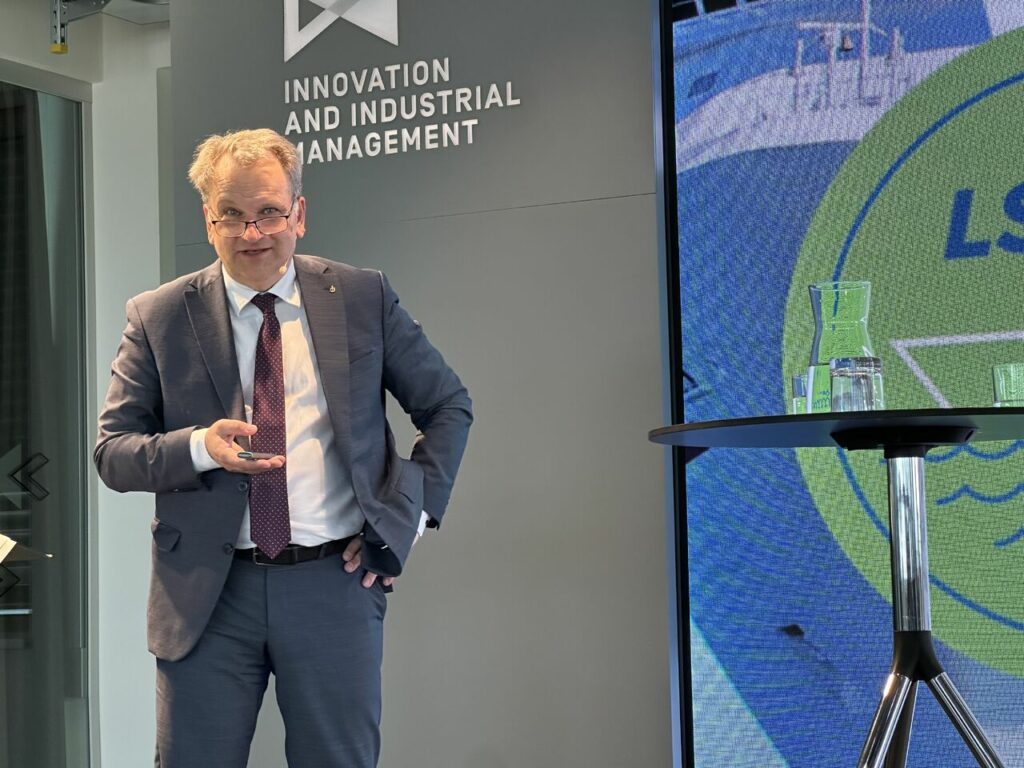
The Director General presented the current Danube fleet and operational profile, emphasizing the need to implement modernization and greening measures. In this regard, the DC workshops have focused on the “Roadmap & actions towards zero-emission Danube fleet”, to be updated and incorporated into the “DC Strategy and Roadmap for Fleet Modernization” – Focus of work on the cargo fleet.
The Roadmap presents potential solutions for the transition toward (near)zero emissions, based on the estimation of GHG emissions of the Danube cargo fleet. These take into account the economic and regulatory barriers, including the long economic life-time of inland vessels and engines on the Danube, the lack of investment capital, and the size sector.
Further steps are needed towards decarbonization of the Danube fleet, in particular, actions by Danube states and at the EC level with regards to regulatory measures for legislative harmonization and financial support measures, e.g., harmonization of the alternative fuels’ taxation, especially for HVO.
The Danube Commission intends to continue the discussions with the EC and its member States regarding a “Fuel EU Inland Regulation”, vessel operators and their associations, fuel suppliers, the aviation sector, and other relevant parties to further assess the proposed measures and to take action towards their implementation.
